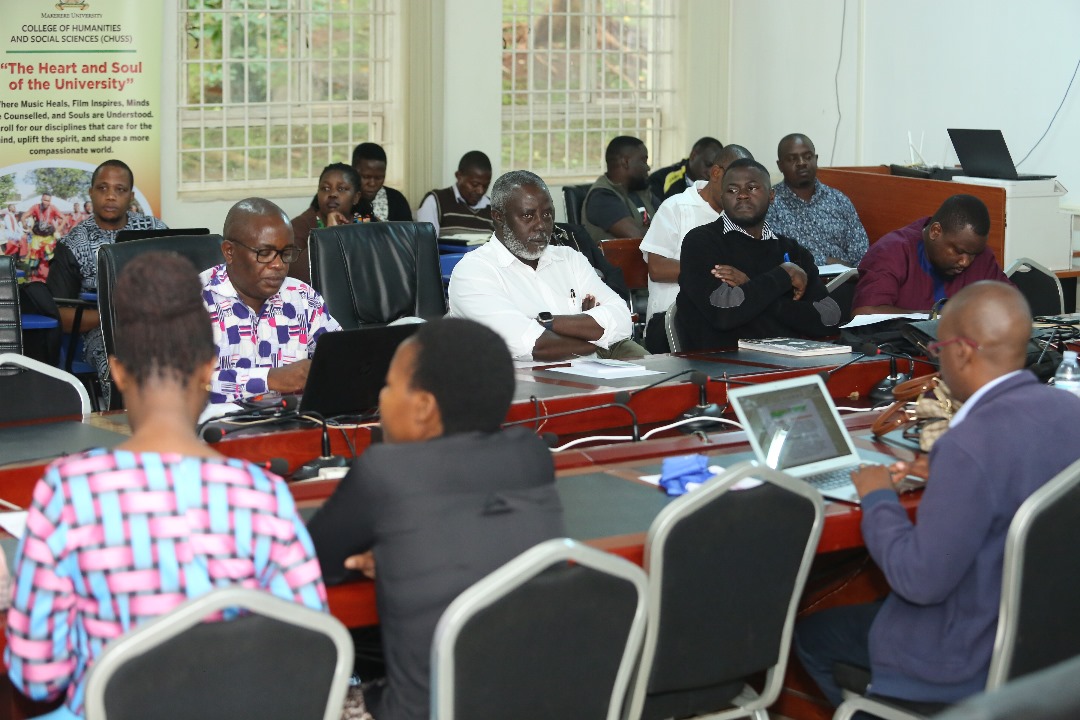Makerere University, Kampala – July 10, 2025 — The two-day pre-submission workshop for the Gerda Henkel-funded doctoral cohort of 2022 concluded on Wednesday at the College of Humanities and Social Sciences (CHUSS) Smart Room, with a comprehensive set of sessions aimed at guiding PhD candidates through the final stages of their academic journey.
Held from July 9 to 10, the workshop brought together doctoral candidates, facilitators, and academic leaders to address critical aspects of thesis submission, institutional compliance, and personal resilience during the pre-submission phase. The event marked a pivotal moment for the nine-member cohort, supported by the Gerda Henkel Foundation, as they approach the culmination of their doctoral studies. Cohort 2024 also attended the training.
The second day of the workshop focused on the technical, editorial, and administrative requirements for thesis submission. Dr. Zaid Sekitto presented on preparing to submit the thesis, including the institutional policies and processes involved. Mr. Michael Mbaine, the college bursar, guided participants on how to check for financial compliance prior to submission, while Dr. Isaac Tibasiima addressed editorial and expression compliance to ensure that theses meet the expected academic standards.
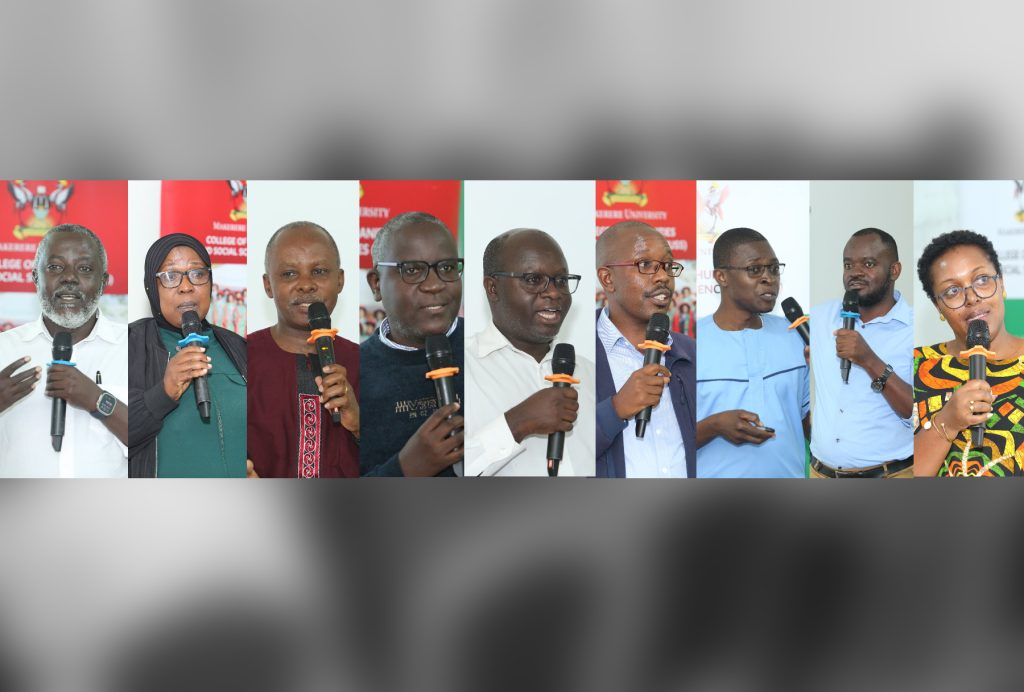
Further sessions tackled the intricacies of the doctoral examination process. Dr. Richard Balikoowa discussed how to respond to comments, navigate the written examination, and work with the critical reader. Dr. Amon Ashaba Mwiine provided practical strategies for handling corrections both before and after the viva voce. Prof. Ellias Andrew State shared insights on how to prepare for and excel in the viva voce, and Assoc. Prof. Julius Kikooma offered an overview of Makerere University’s policies on thesis submission, examination, and completion.
CHUSS Leadership Encourages Resilience and Community
Speaking on behalf of the CHUSS Principal, Assoc. Prof. Saudah Namyalo delivered an address acknowledging the academic and emotional challenges doctoral candidates face during the pre-submission phase. “This stage has its own challenges. Some of you are back to your workplaces, teaching and juggling responsibilities while trying to complete your PhDs,” she said. “Some of you are anxious, stressed, asking yourselves, ‘Will I make it? Will I pass?’ That is completely normal.”
She praised the Gerda Henkel Foundation for transforming the PhD experience at Makerere from an isolated journey into a collaborative and well-supported process. “Thanks to Gerda Henkel and our dedicated coordinators, it is no longer a lonely PhD journey as we knew it. You’ve had guidance and workshops at every step,” she noted.
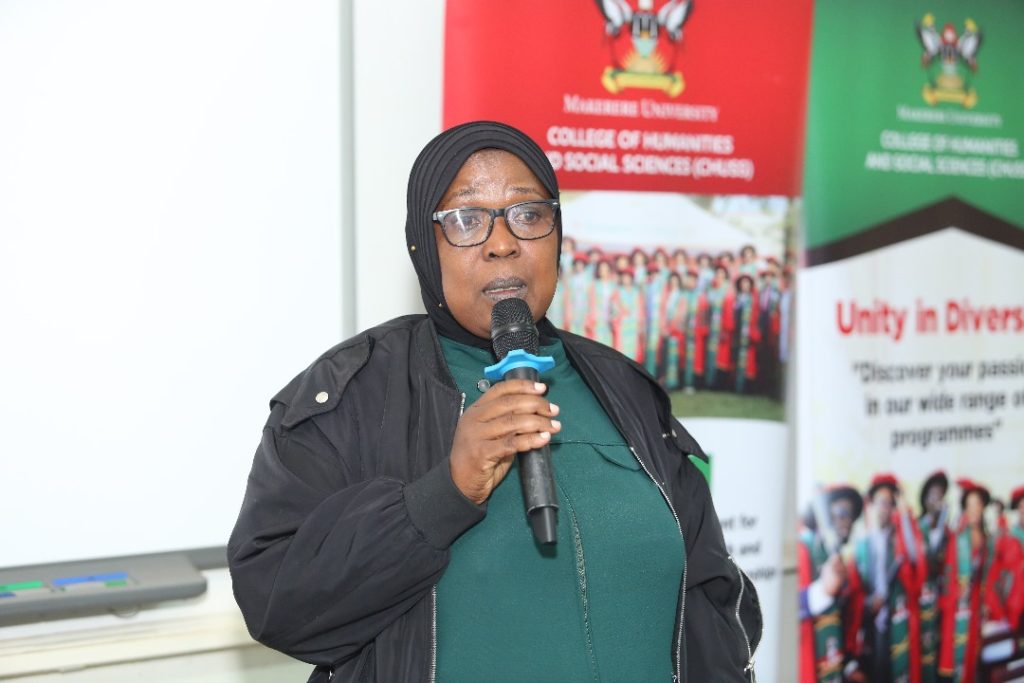
Assoc. Prof. Namyalo also encouraged candidates to resist the pressure to perfect their work indefinitely. “Don’t become perfectionists. The book will never be 100% perfect. But also, no serious supervisor will endorse a book that is not ready,” she emphasized.
She reassured students of the university’s support systems, noting that internal examiners now have a six-week timeline to complete assessments—a significant improvement from the previous three-month window.
As the 2022 cohort enters the final stage of submission, the workshop served as both a technical guide and a morale booster. The participants were reminded of the importance of seeking help when overwhelmed, maintaining balance, and trusting the process.
“With the right support and preparation, you will cross the finish line,” Assoc. Prof. Namyalo concluded.
“Let the PhD Take Its Course: Assoc. Prof. Edgar Nabutanyi Urges Patience and Purpose During Doctoral Journey”
Assoc. Prof. Edgar Nabutanyi, the project coordinator called on PhD candidates to embrace the doctoral process with patience, reflection, and intellectual purpose.
Speaking during the closing session of a two-day pre-submission workshop, Assoc. Prof. Nabutanyi emphasized the structured nature of academic governance at the university and the critical role it plays in guiding PhD scholars.
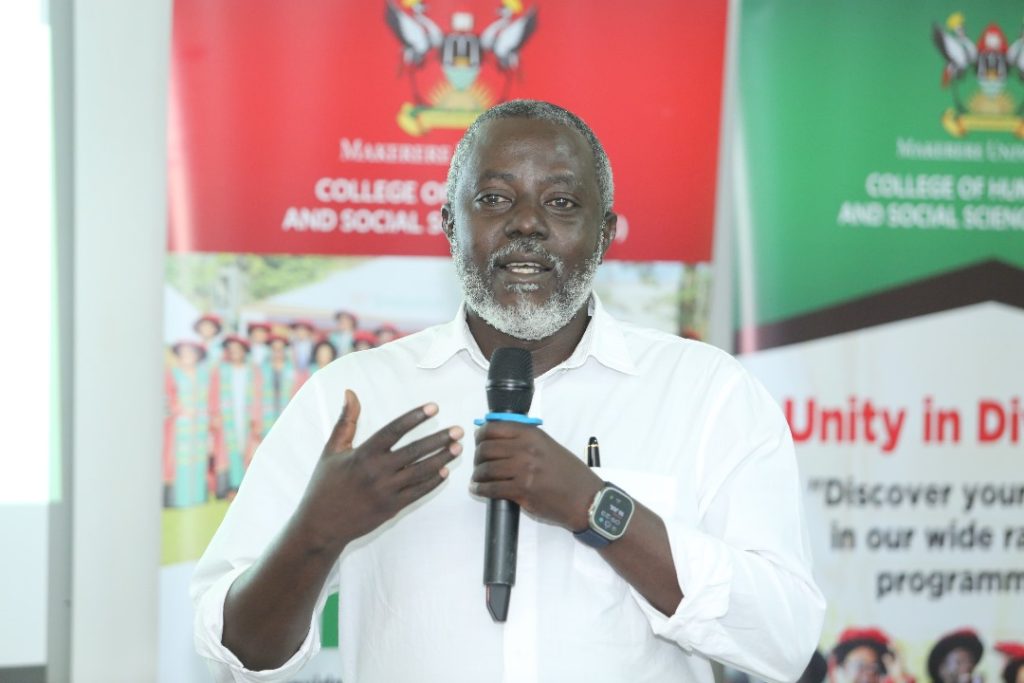
“The academic arrangement in Makerere is such that the department owns the intellectual product, but its management lies with the principal and deans,” he said. “That is why it is important that we hear from the principal’s office and the dean’s office about their plans for the upcoming academic year.”
He underscored the importance of recent revisions to Makerere’s PhD training structure, particularly the requirement that PhD candidates teach for at least one semester. According to Nabutanyi, this innovation provides candidates with hands-on exposure to teaching, research, and academic outreach, essential pillars of university life.
Drawing attention to global trends, Nabutanyi noted that some regions, such as North America, are facing a sharp decline in the number of humanities PhDs, partly due to shifting career incentives. “Many PhDs are being drawn into AI validation and corporate tech rather than academia. But unless you are heading into artificial intelligence modeling, we expect you to contribute to research and university teaching,” he stated.
To that end, the workshops, now a recurring part of the Gerda Henkel doctoral program — serve as both intellectual preparation and emotional support for students nearing completion. “A PhD is a process, not an event,” Nabutanyi said. “Every part of this process contributes to your intellectual growth. These workshops are meant to help you share experiences, receive guidance, and prepare for the inevitable milestones of academic life.”
He also addressed the emotional toll and mounting pressure candidates face as submission deadlines loom, urging students to avoid rushing the process for the sake of completion. “Let the PhD take its process. Don’t force it,” he advised. “As pressure builds, the chances of saying something regrettable to your supervisor or mishandling feedback increase. Take time to decompress. The book will come when it’s ready.”
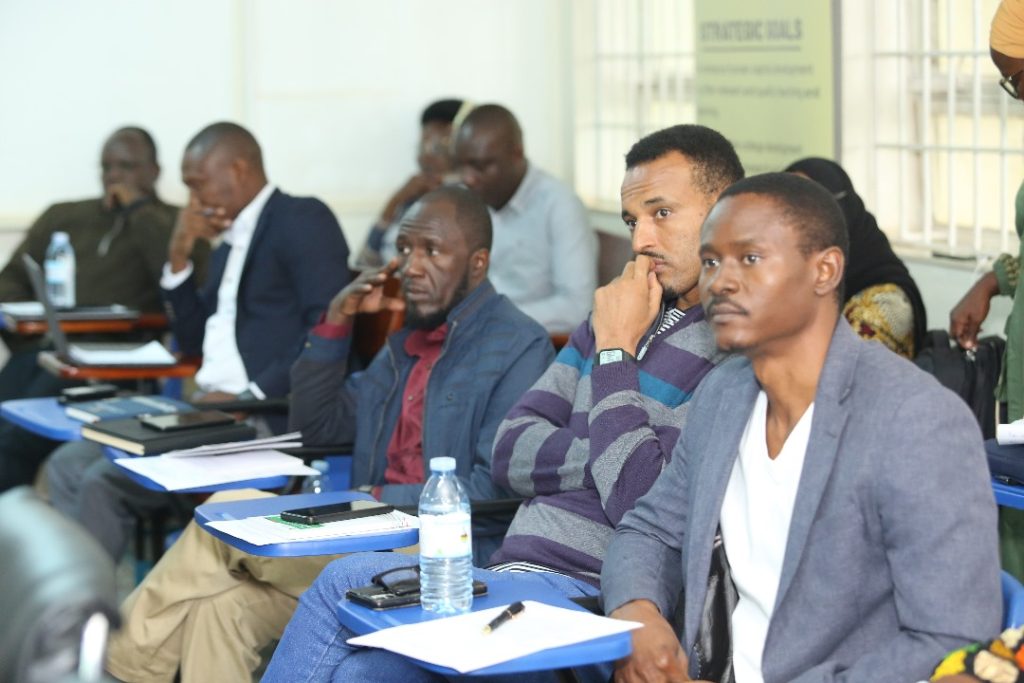
longstanding support of the program. He also acknowledged the role of Makerere University in enabling academic pursuits, even amid occasional institutional misunderstandings. “We are grateful for your contributions and commitment to this journey,” he said.
With many in the 2022 cohort preparing to enter academia officially, the message from Nabutanyi was clear: patience, perspective, and preparedness will ultimately define their success.
A Call for Discipline, Diligence, and Timely Completion – Dr. Levis Mugumya
The pre-submission workshop concluded on a reflective yet firm note, as Project Coordinator Dr. Levis Mugumya urged doctoral candidates to stay disciplined, prepare early for submission, and avoid relying on extensions.
Addressing participants at the closing session Dr. Mugumya commended both the 2022 cohort, many of whom are submitting or have already submitted their dissertations and the 2024 cohort, who are preparing to enter fieldwork.
Quoting from the biblical book of Timothy, he likened the final phase of the PhD journey to finishing a race: “I have fought a good fight, I have run the race, and now I am waiting for the prize.” Applauding the efforts of the 2022 candidates, he reminded the 2024 group that their most critical academic work still lies ahead.
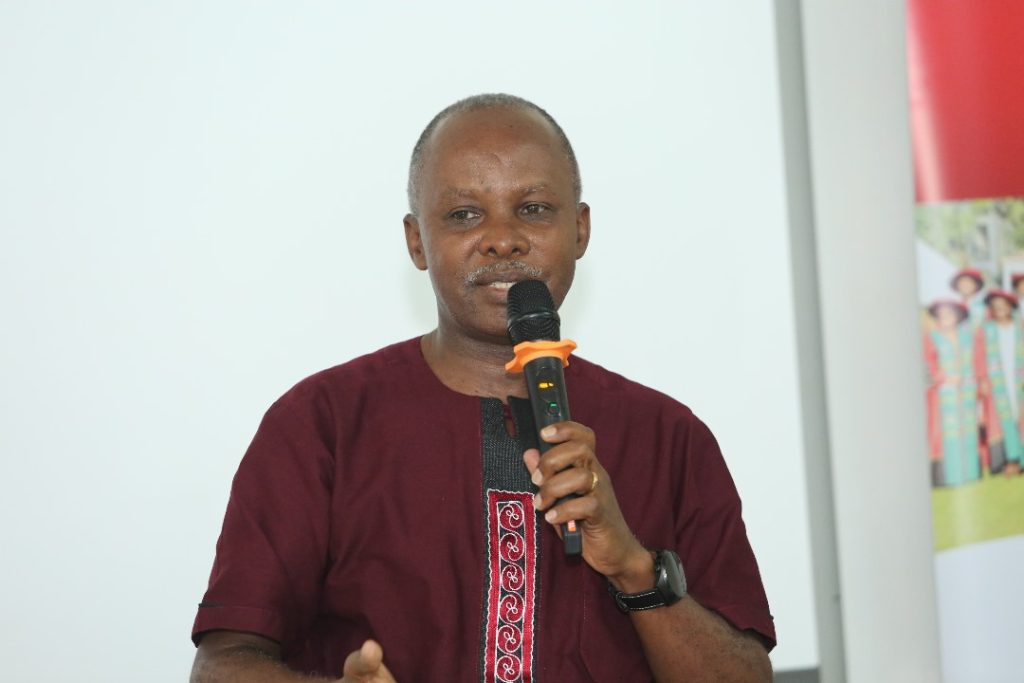
“This has been an enriching experience,” Dr. Mugumya said. “For the 2022 group, you’ve come far. For the 2024 cohort, your journey is still unfolding. But the finish line is not unreachable.”
He extended heartfelt appreciation to supervisors and academic mentors who have been instrumental in guiding the students, naming Professors Wamala, Patrick Mangeni, and others who played key roles. He also took pride in the success of former students like Dr. Isaac Tibasiima and Dr. Richard Balikoowa, now presenters and mentors themselves, as evidence of the program’s long-term impact.
Looking ahead to graduation, Dr. Mugumya reminded students that the university’s deadlines are firm. For those aiming to graduate in January 2026, thesis submission must be completed by the end of July 2025. “Examination timelines have been reduced from three months to six weeks,” he noted, but cautioned students not to take this for granted. “Start early, give the process time, and ensure your viva voce and revisions can happen in good time.”
He also addressed financial and contractual expectations, clarifying that the last stipend payments have been made and that any future costs related to extensions will not be covered by the program. “We want you to finish strong, but we must also be realistic. If you were funded and couldn’t finish within the agreed timeline, don’t expect automatic tuition waivers,” he said.
Dr. Mugumya acknowledged the emotional toll that comes with striving for perfection at the final stages. “A good dissertation is a complete one,” he said, echoing remarks made earlier in the workshop. “After you’ve submitted and made corrections, don’t dwell on it. You’ll always find something you wish you’d changed. Instead, move on to the next chapter—whether it’s publishing, applying for postdocs, or advancing your academic career.”
He concluded by confirming that this workshop marked the final formal event organized for the 2022 cohort under the Gerda Henkel program. Although candidates may still participate in mock defenses or departmental reviews, this session symbolized their transition toward independence in the final stages of their PhD journeys.
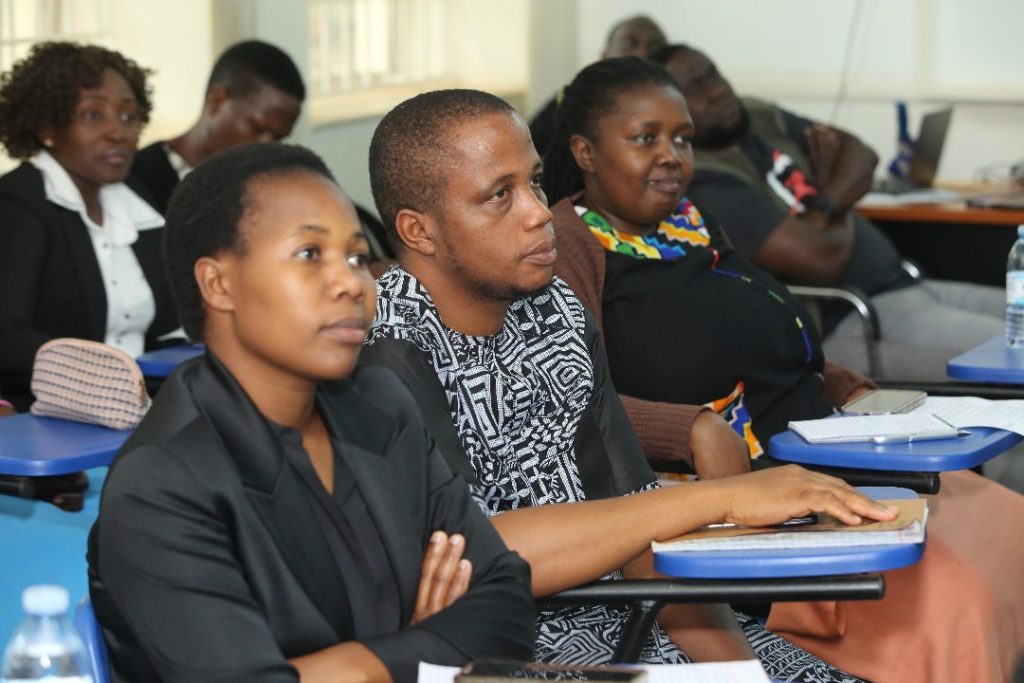
“We have done enough preparation. The rest is now in your court,” Dr. Mugumya said. “Go finish what you started, and finish it well.”
Dean Twesigye Closes workshop with Call for Scholarly Rigor, Community, and Academic Renewal
Dr. Justus Twesigye, Dean of the School of Social Sciences at Makerere University, officially closed the Gerda Henkel-funded pre-submission workshop with a call for scholarly rigor, disciplinary identity, and mentorship-driven academic renewal.
Dr. Twesigye praised both students and facilitators for what he described as “two days of rich intellectual engagement.” He acknowledged the presence and mentorship of senior professors, including Professor Wamala and Professor Mangeni, noting their longstanding dedication to nurturing Uganda’s next generation of scholars.
“This workshop is a symbol of our commitment not only to academic excellence but also to being a caring community,” he said. “We don’t just want you to pass, we want you to grow into leaders, to carry this mentorship forward.”
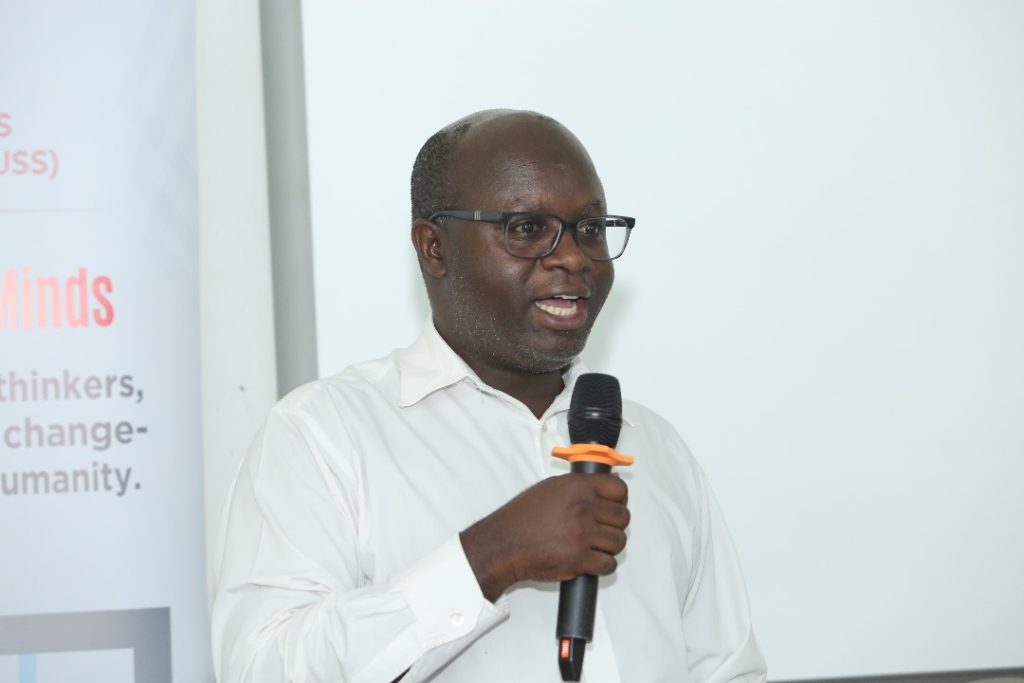
The Dean emphasized that learning is a continuous process and praised the spirit of generosity and collaboration demonstrated during the workshop. Borrowing a metaphor, he added, “A candle does not get dim by lighting another candle,” urging participants to continue supporting one another beyond the workshop.
Reflecting on the evolution of doctoral training at Makerere, Dr. Twesigye noted that today’s students benefit from far more support structures than in previous years. “In 2010, we didn’t know we would one day be organizing and facilitating such events,” he said, urging students to use the foundation provided to drive even deeper reforms in Uganda’s academic culture.
He also called on candidates to embrace their academic identities and remain grounded in their disciplines. “I find it difficult when a student can’t tell if they belong to philosophy, political science, history, or gender studies,” he said. “Your dissertation should position you clearly within a scientific community. That’s the only way we grow knowledge and deepen conversations.”
Dr. Twesigye cautioned against mediocrity in thesis assessment and academic standards, urging examiners and academic committees to strike a balance between fairness and rigor. “If someone deserves a 6 out of 10, let’s be honest about it. But we must also give people hope—our goal is to help them improve, not to crush them,” he said.
He urged students to resist what he termed “post-PhD syndrome”, a tendency for recent graduates to harshly judge others. Instead, he advocated for innovation, creativity, and empathy in shaping the future of academia.
To those who had received financial support under the Gerda Henkel program, Dr. Twesigye offered a sober reminder of their privilege and responsibility. “You are very lucky,” he said. “One day, you’ll be the ones creating opportunities for the next generation. Do not take that lightly.”
He assured those without current funding that their efforts were equally valued and encouraged them to persevere, expressing confidence that “opportunities will come” and “tomorrow will be better than today.”
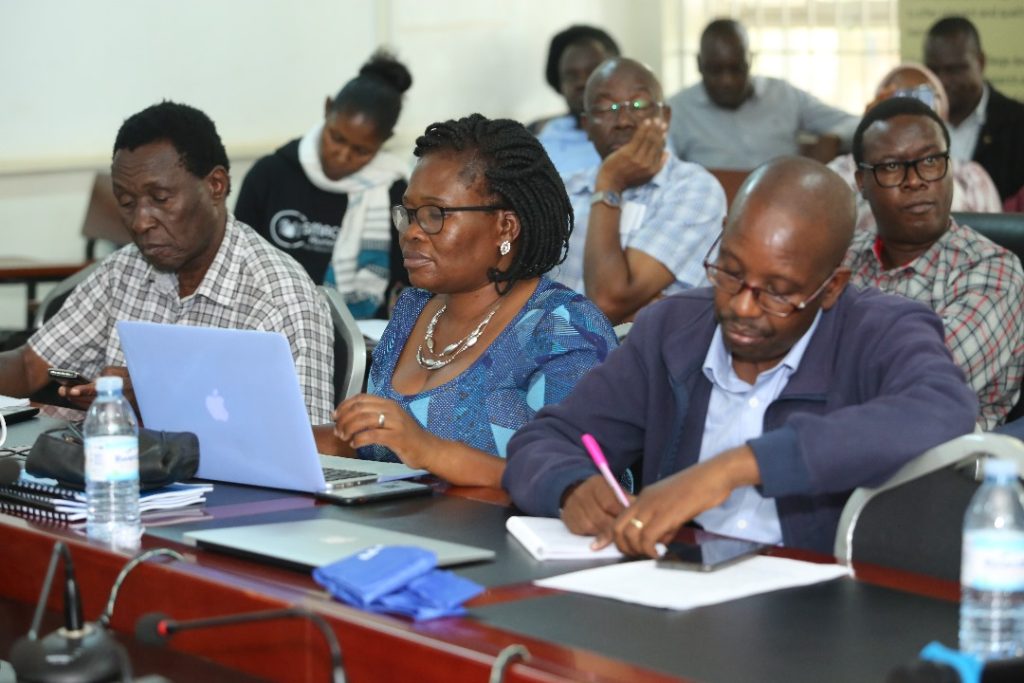
Looking ahead, Dr. Twesigye invited candidates to defend their work not only within the CHUSS framework but also through alternative platforms in the School of Social Sciences. “We will be there to celebrate with you,” he said. “Let us prepare not just for defense, but for celebration.”
In closing, he declared the workshop officially concluded, but not the conversation. “The workshop is closed, yes. But the engagement continues. The journey continues. And the celebrations are ahead,” he said.
The two-day workshop served as both a technical preparation and a moment of reflection for the Gerda Henkel-funded 2022 PhD cohort, many of whom are now finalizing their dissertations. It was attended by faculty, mentors, and students from across disciplines, reinforcing Makerere University’s vision of a more supportive, rigorous, and responsive academic environment.
By Jane Anyango
Principal Communication Officer, CHUSS

